SEO Friendly URLs
What are SEO friendly URLs?
SEO-friendly URLs are URLs that are designed to meet the needs of users and help search engines understand what a web page is about. They are typically short, descriptive, and include relevant keywords.
Why are URLs important for SEO?
Along with your title tag, link anchor text, and the content itself, search engines use your webpage’s URL to understand what your content is all about.
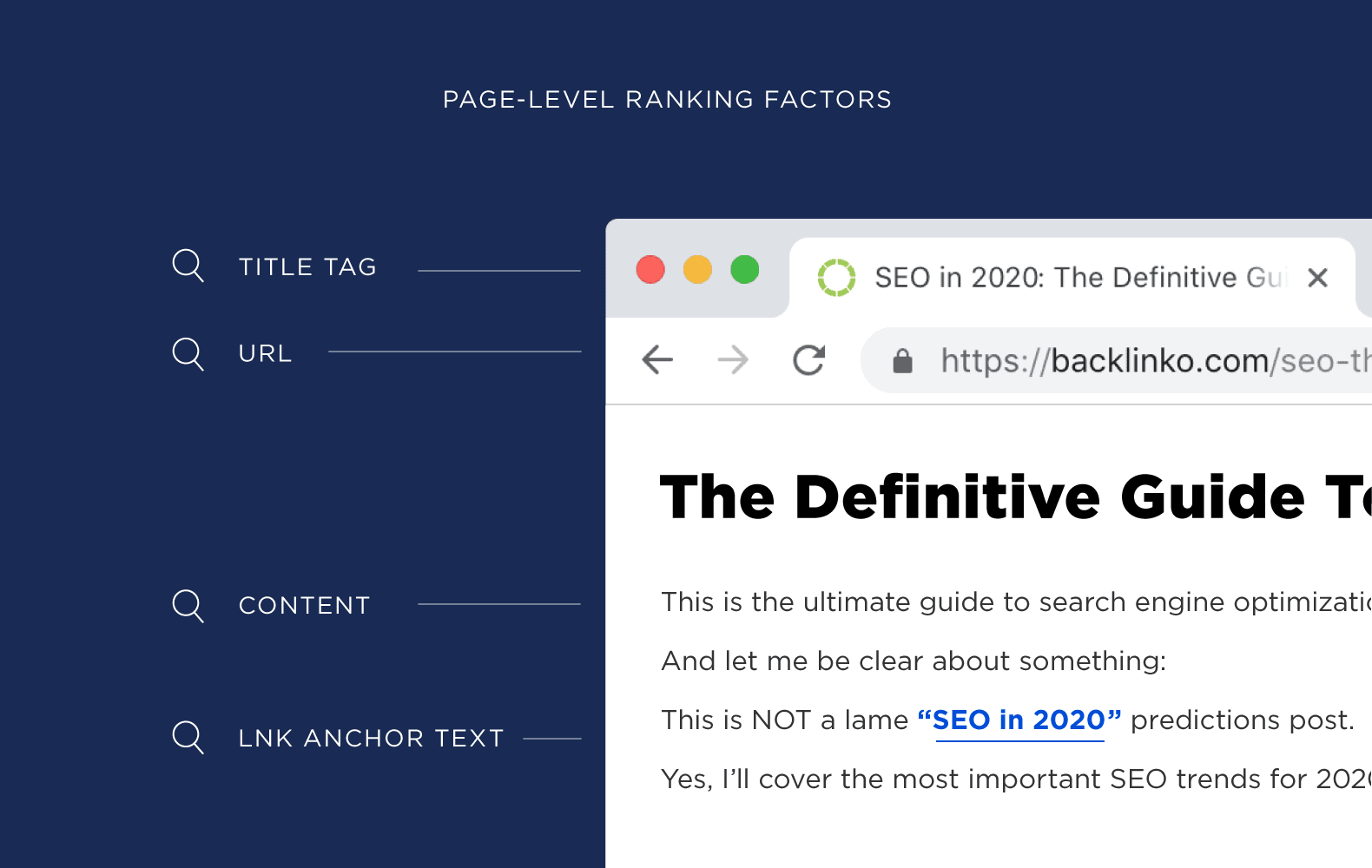
In fact, URLs are so important that the Google SEO starter guide dedicates an entire section to them:
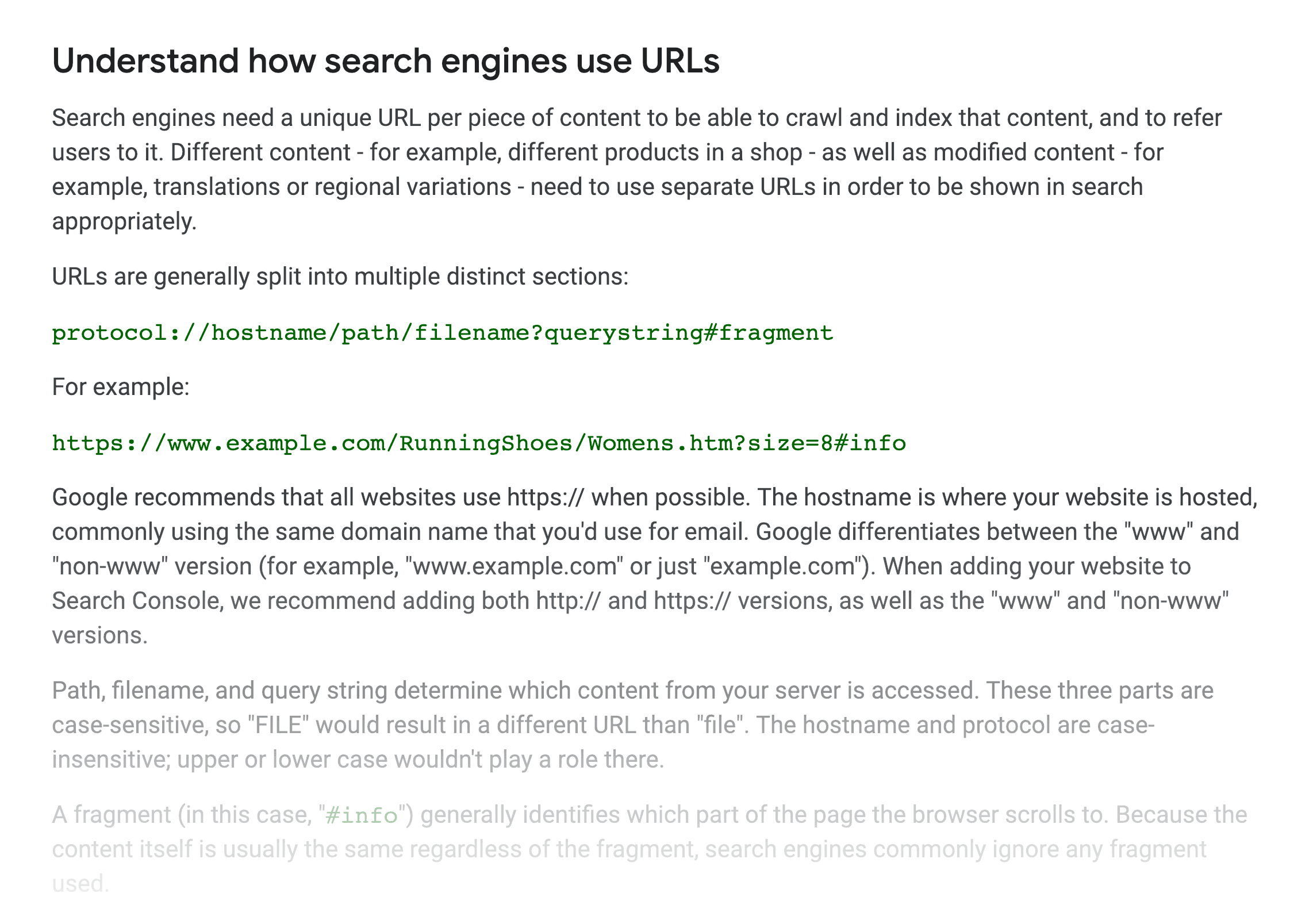
Best Practices
Use a Keyword
Your URL should contain a keyword that you want your page to rank for.
(Preferably, that page’s target keyword)
Why?
When you include a keyword in your URL, that keyword tells Google: “This page is about that keyword”.
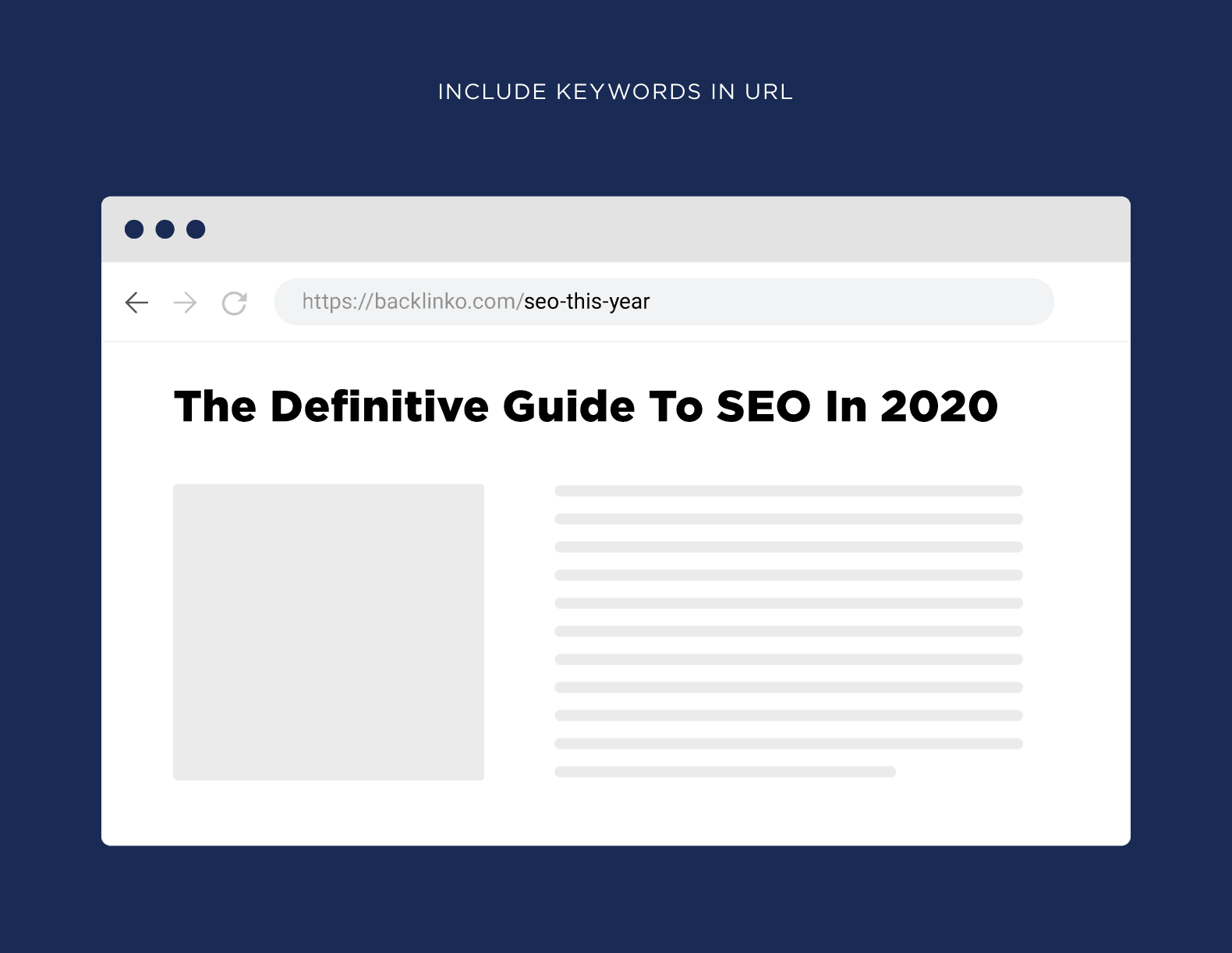
In fact, Google themselves state that:
“URLs with words that are relevant to your site’s content and structure are friendlier for visitors navigating your site.”
For example, here’s my post that lists 150+ SEO tools.
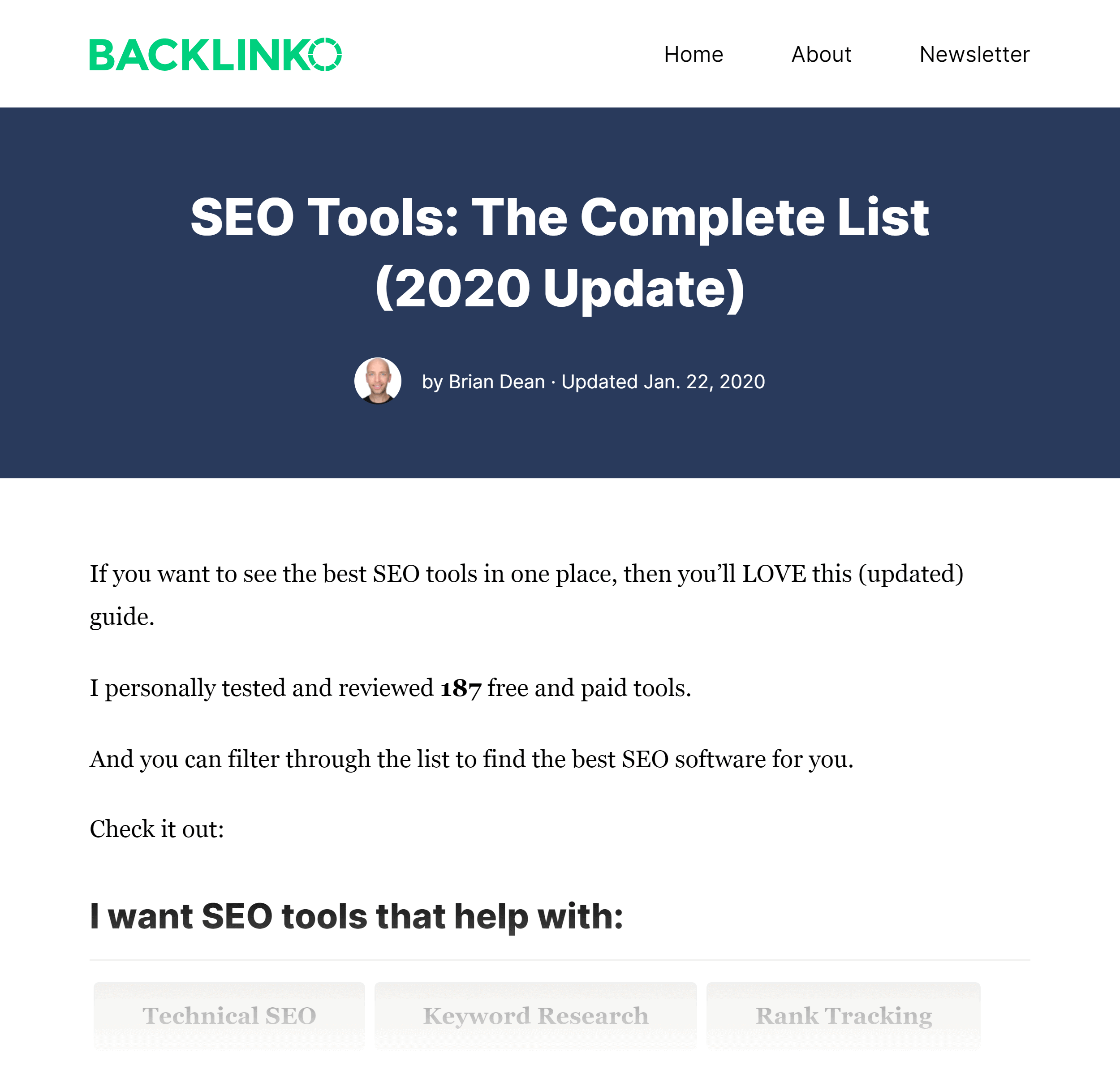
My target keyword for that page is “SEO tools”. And, you can see, my URL has that keyword in it:
https://backlinko.com/seo-tools
Use Hyphens In-Between Words
Use hyphens as “word separators” in your URL.
For example, here’s a URL from a page on my site:
https://backlinko.com/tools/seo-checker
I use a hyphen “-”, to let search engines know that “SEO”, “site” and “audit” are three separate words:
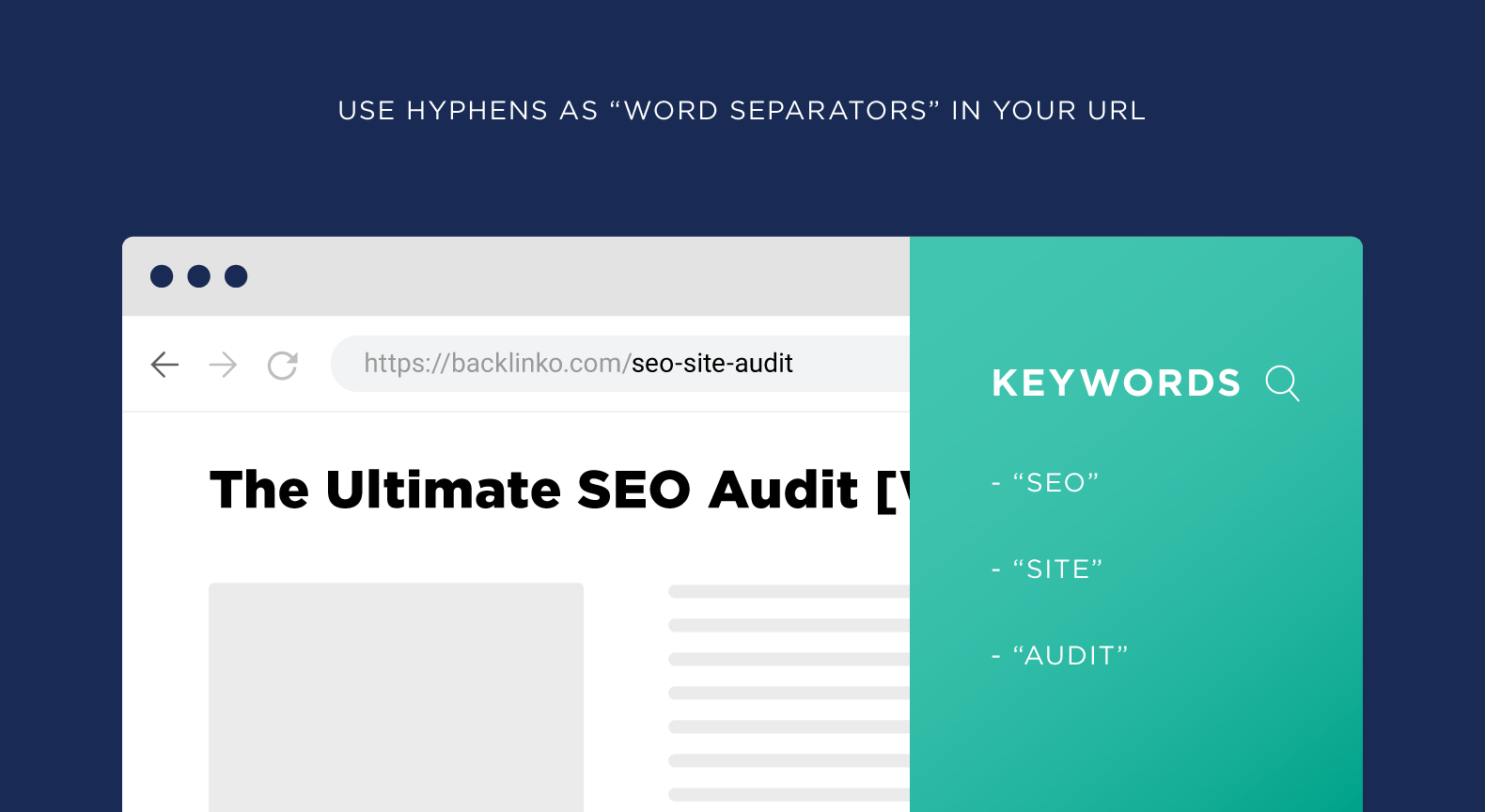
I could have used a URL like: backlinko.com/seositeaudit, but that URL is harder for search engines and users to read and understand.
Why are hyphens so important? They’re the standard way of separating words in a URL.
That’s why Google states that people should avoid using underscores or spaces in their URLs. Instead, they recommend hyphens.
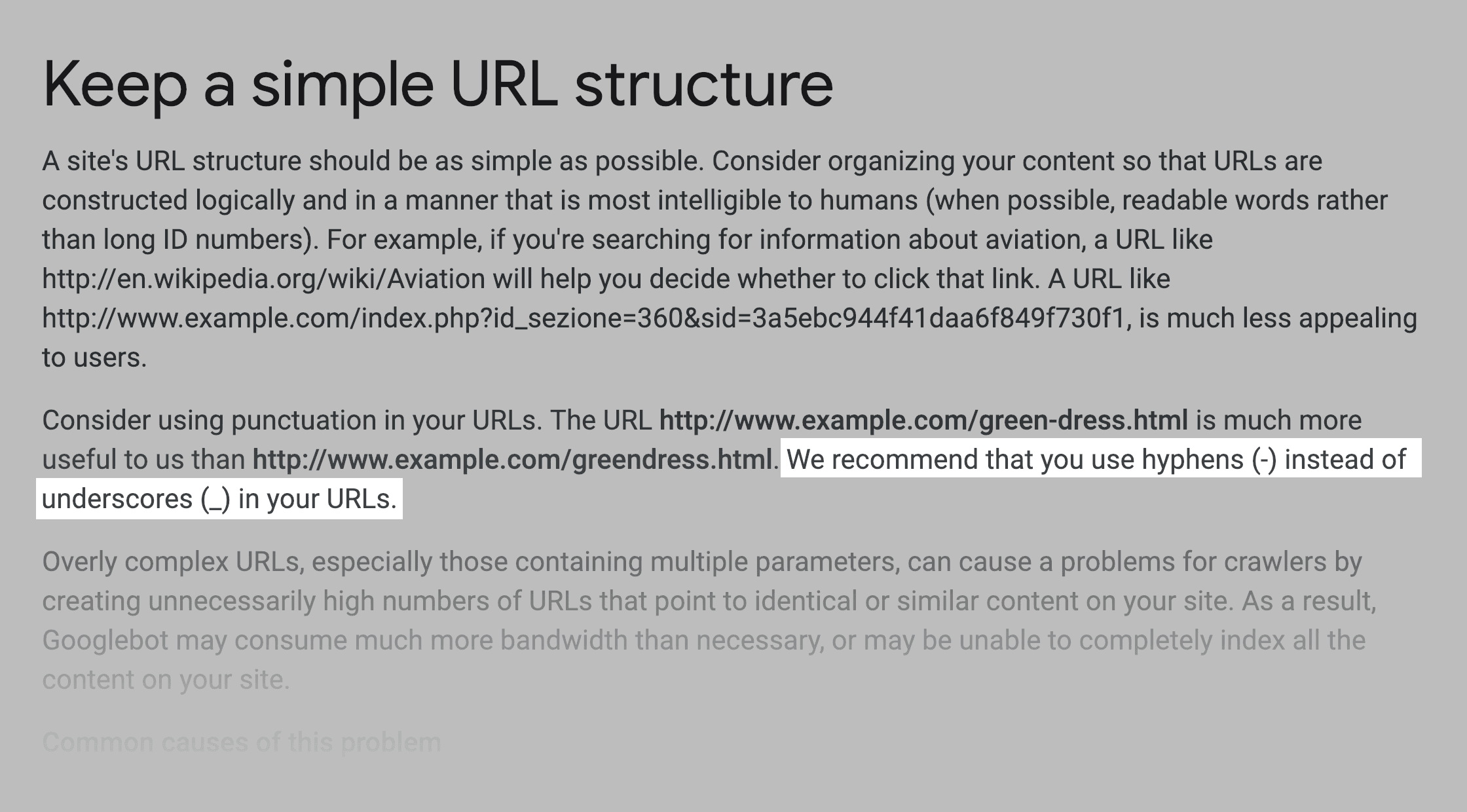
Short
Your URLs should be short and sweet.
That’s because long URLs confuse Google and other search engines.
For example, this URL contains a lot of junk.

To Google, this page is about baseball. But it’s also about redirect… and default?
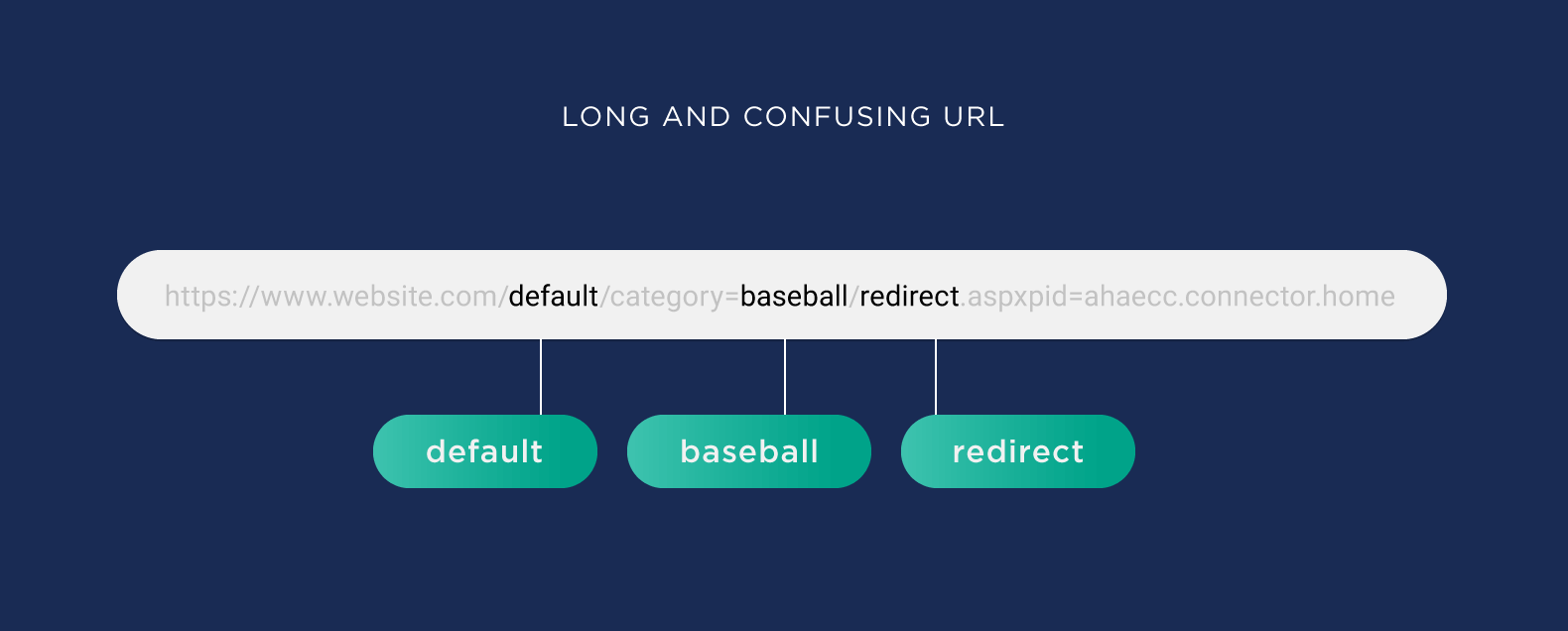
Compare that massive URL to a much shorter version:

Because this URL is super short, Google can easily figure out the topic of that page.
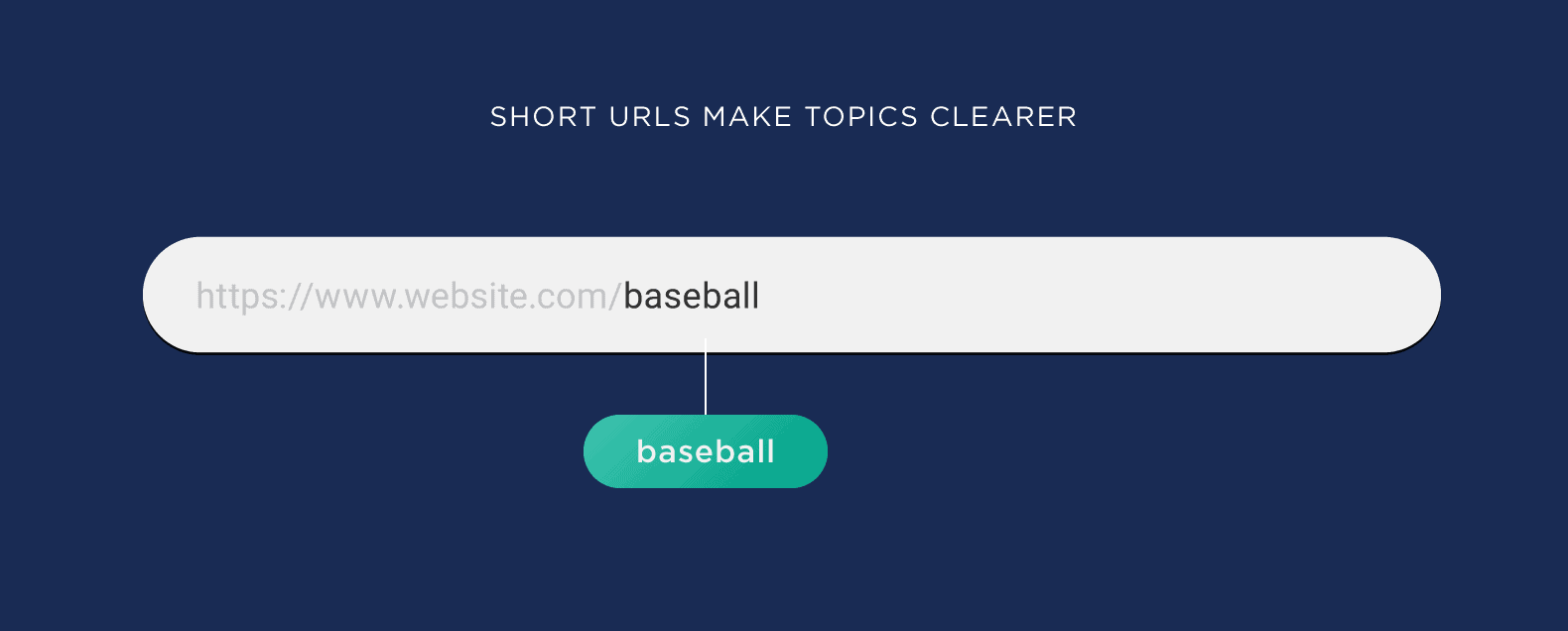
That’s probably why our ranking factors study found a strong correlation between short URLs and higher Google rankings:
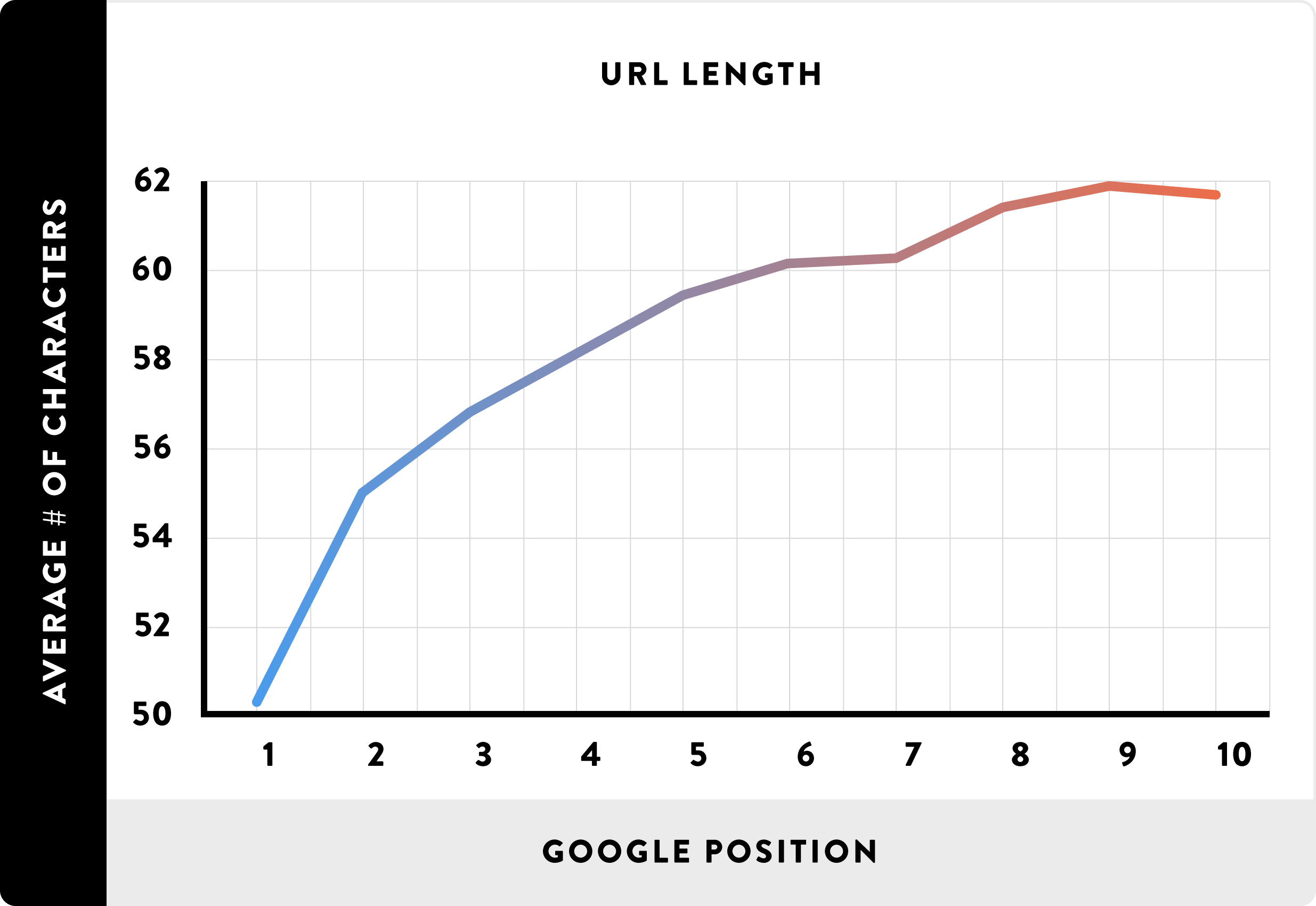
Also, short URLs don’t just help that individual page rank better. Using short URLs across your entire site can help Google find and crawl all of your pages.
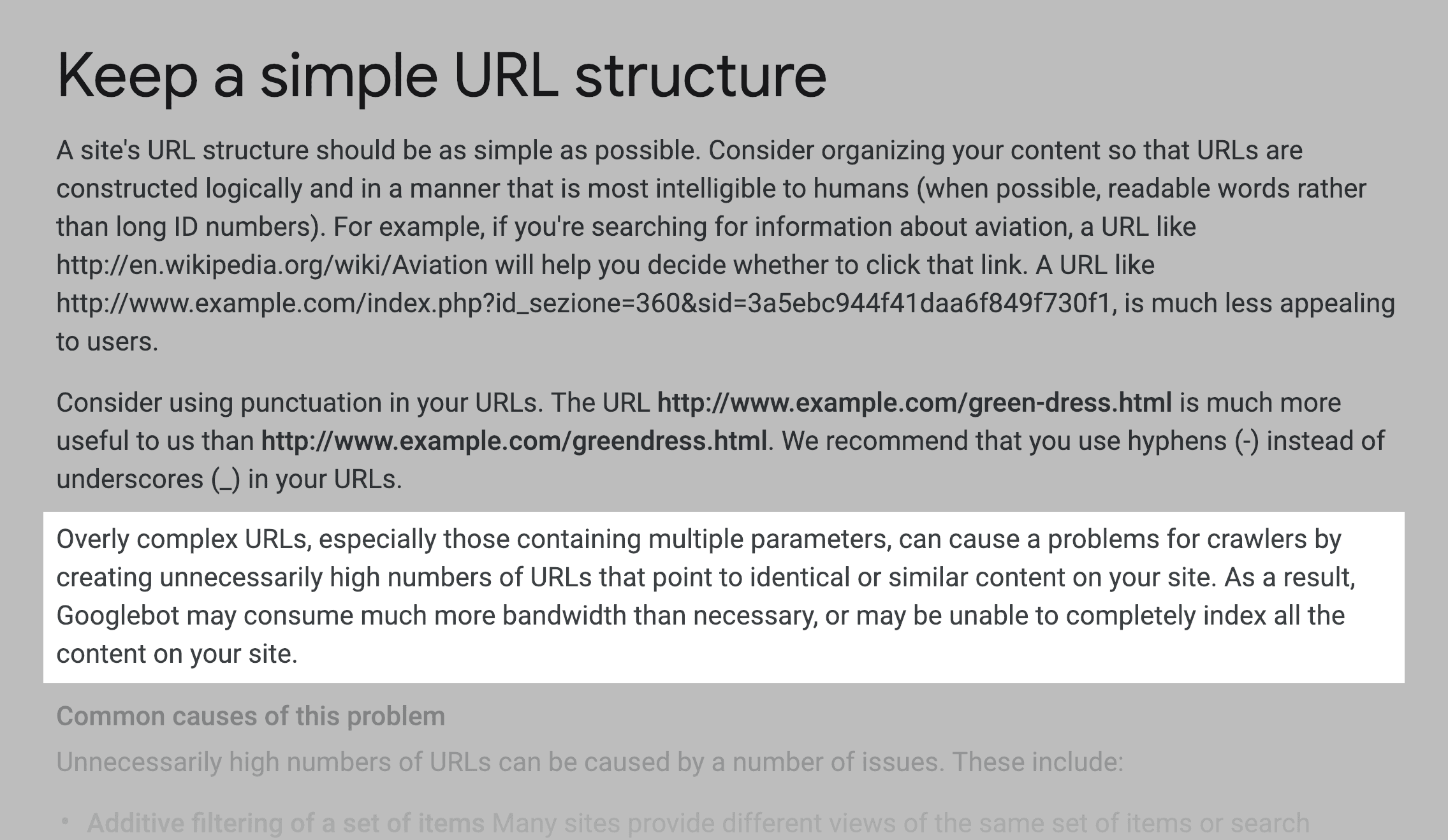
And if that’s not enough to convince you, a Brafton study found a correlation between short URLs and more social shares:
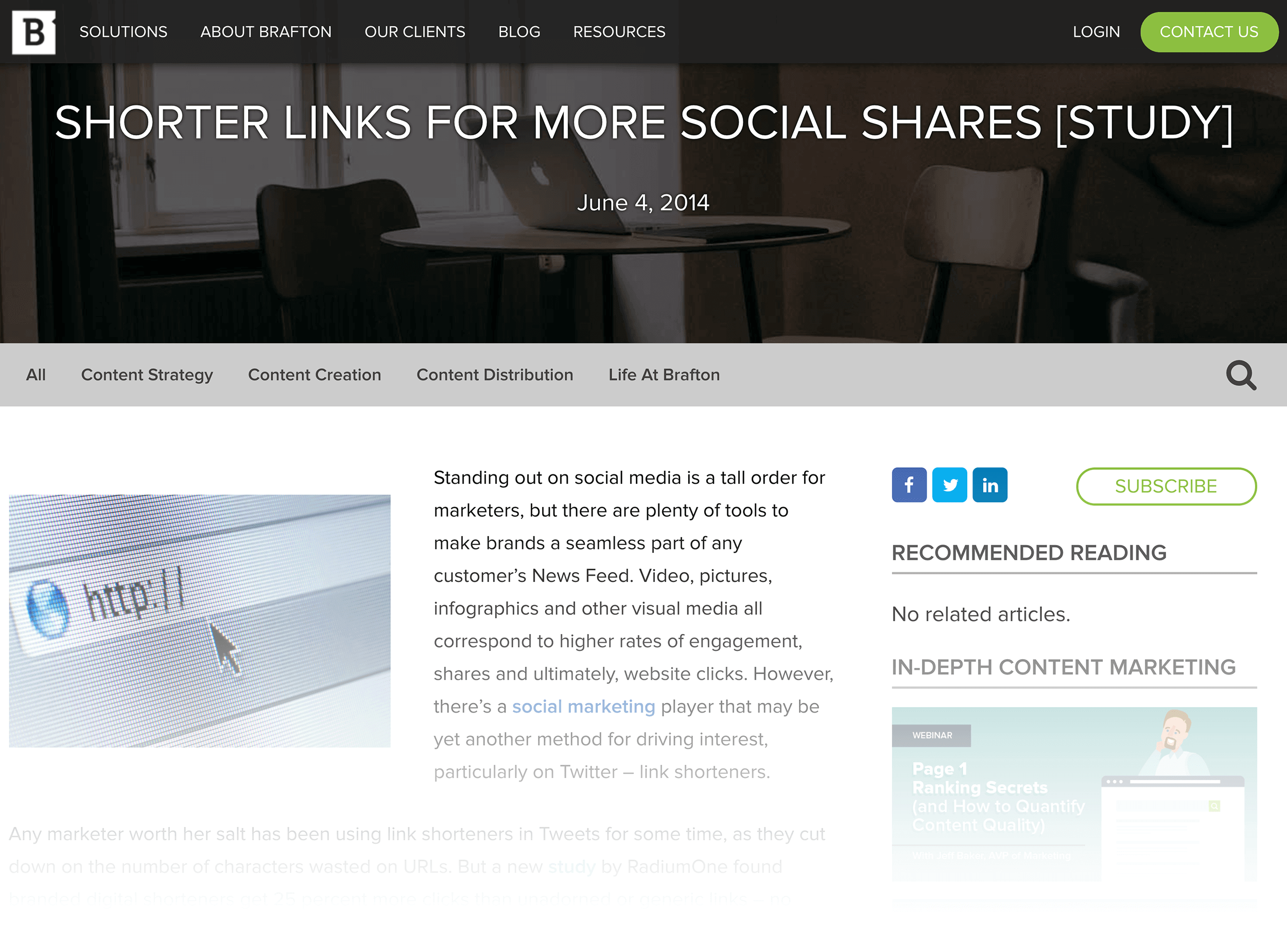
Enticing to Click On and Share
Organic click-through-rate is a VERY important search engine ranking factor right now.
And your URL is a big part of whether or not someone chooses to click on your site in the search results.
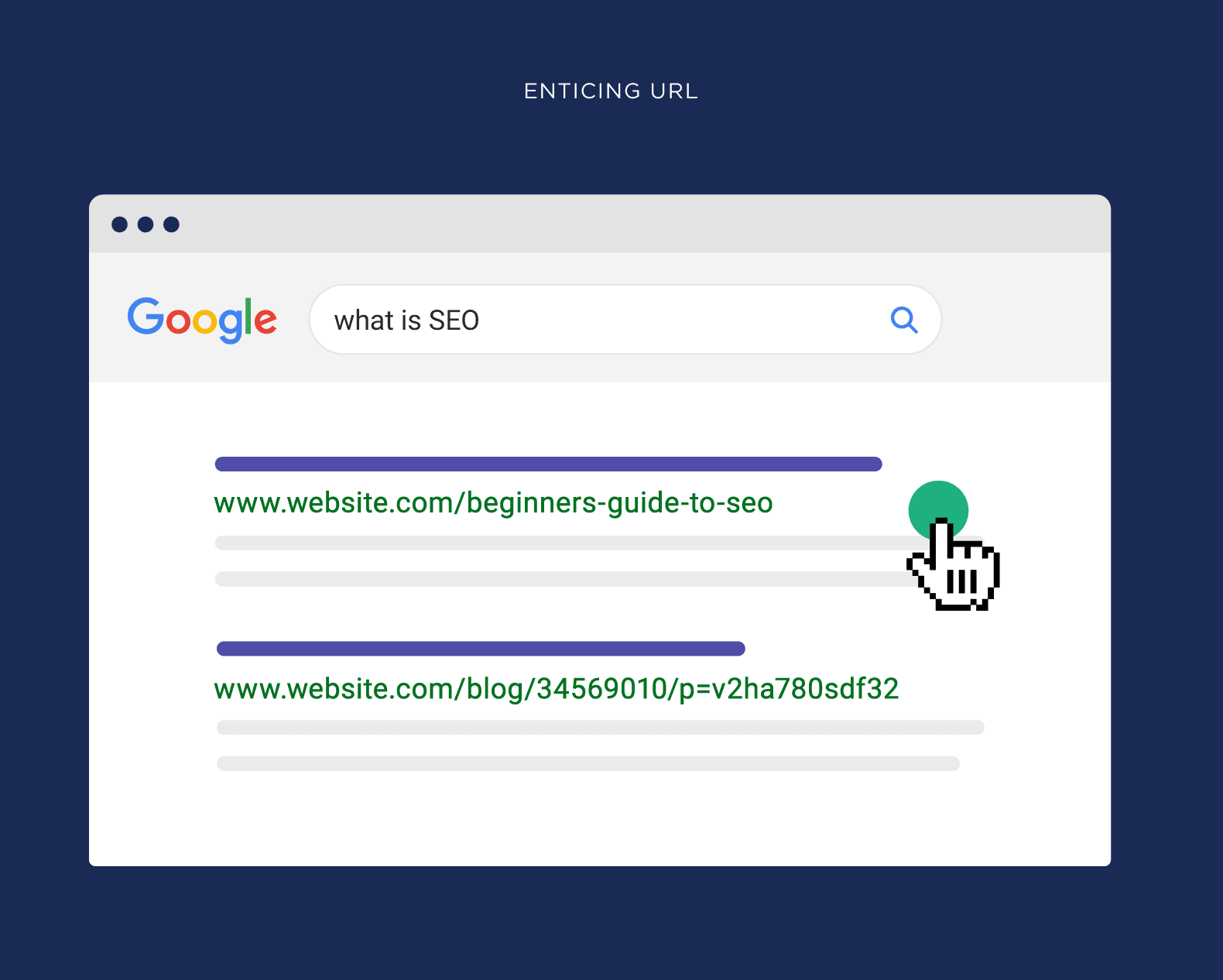
After all, people use your URL to figure out where a link is going to take them. And if your URL looks like this, people will have no clue what page they’re gonna end up on:

(Which makes them MUCH less likely to click)
This isn’t limited to Google’s search results.
Ugly URLs are less likely to get clicked on and shares on social media and online communities (like Reddit).
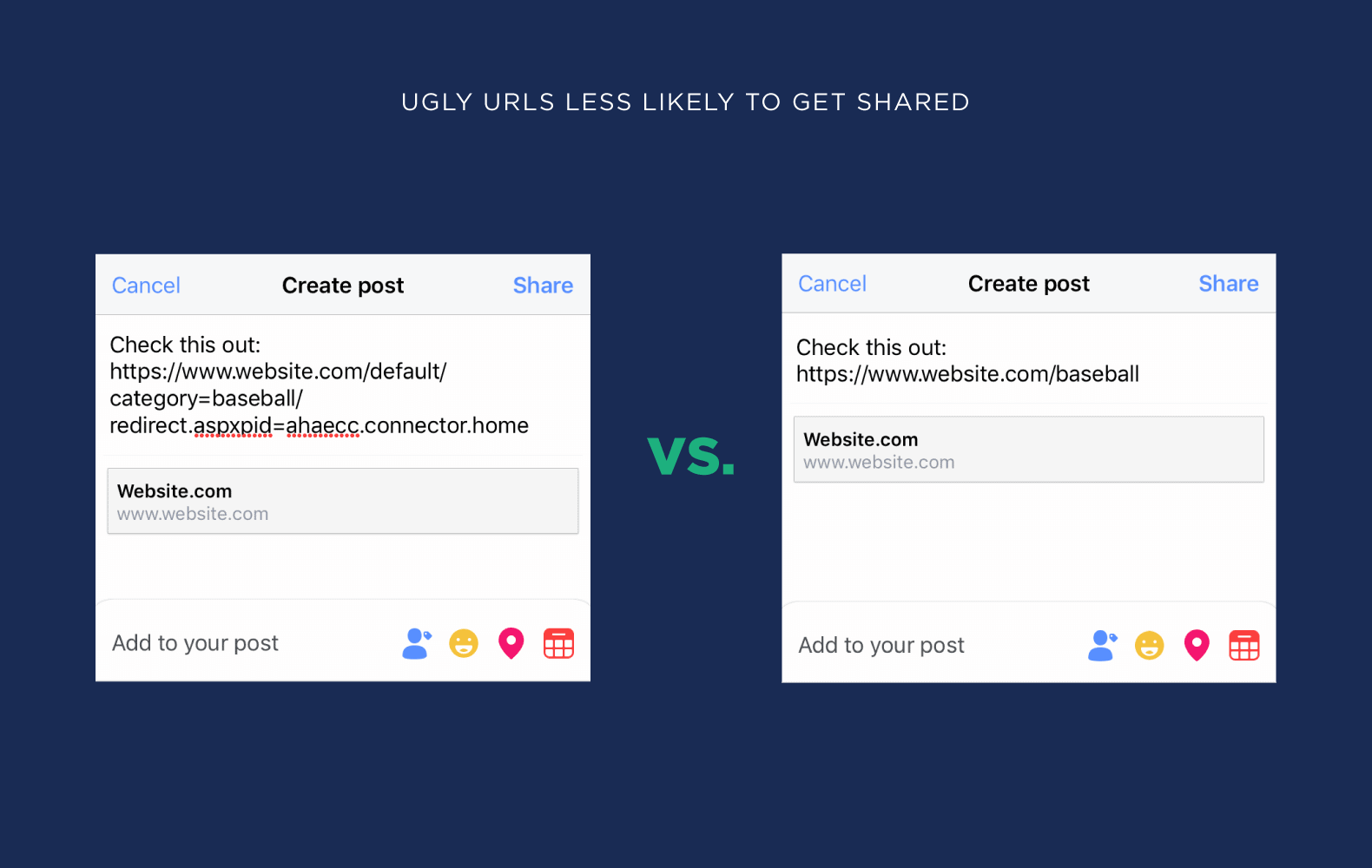
That said:
If you follow the other best practices here (short URLs, use a keyword etc.) you’ll naturally create something that people want to click on.
Stick With Lowercase
This isn’t a huge deal because most modern servers treat capital and lowercase letters in URLs the same.
(But some don’t)
For example, some servers will treat these URLs as different.
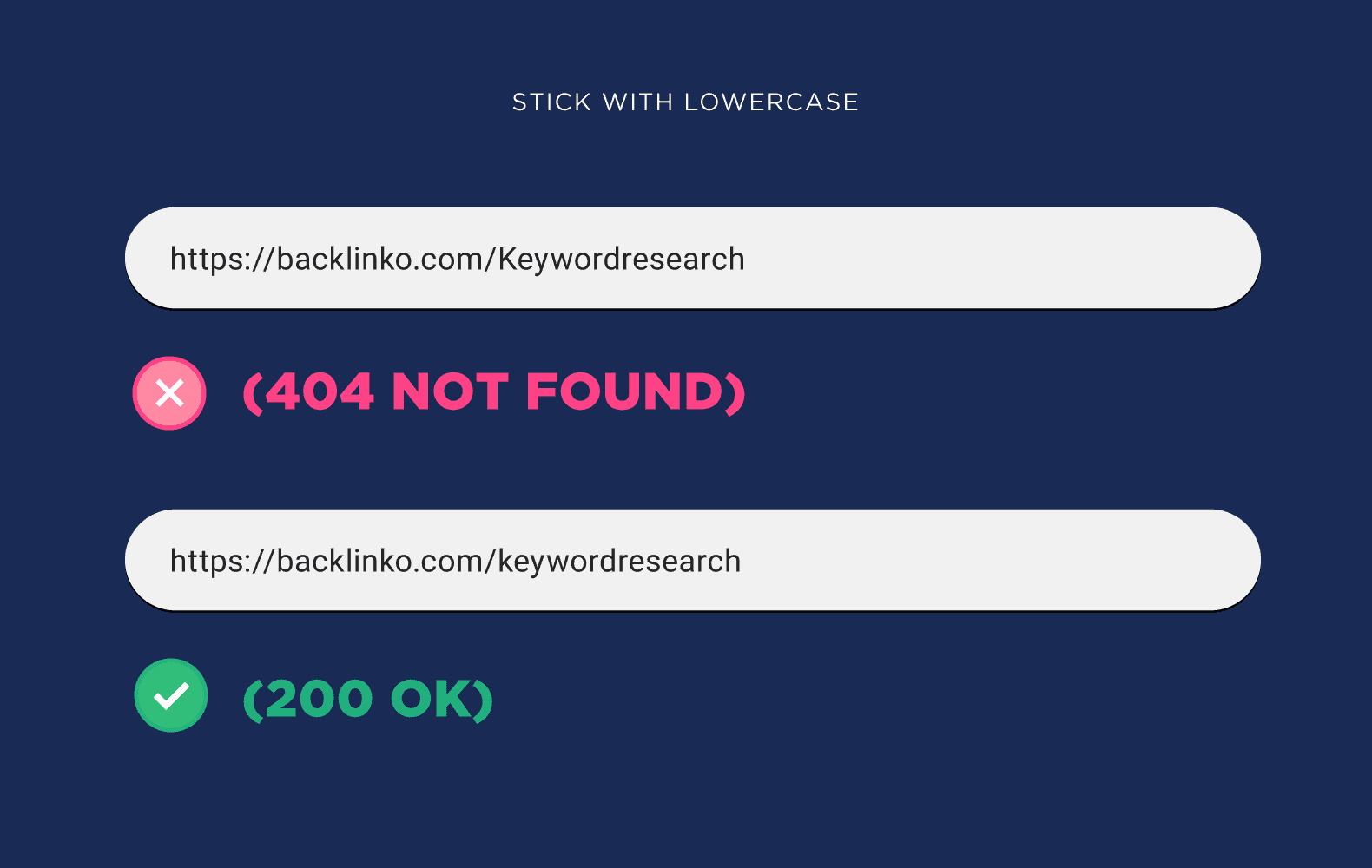
So to be on the safe side, use lowercase for all of the letters in your URLs.
Avoid Using Dates
Back in the day, CMS’s (like WordPress) automatically included dates in URLs:

This is less common in 2020. But I still see a lot of people using dates in their URLs. And it’s a VERY bad idea.
There are two reasons for this:
First off, dates make your URLs longer.
For example, this URL contains a 4-word keyword and the date:
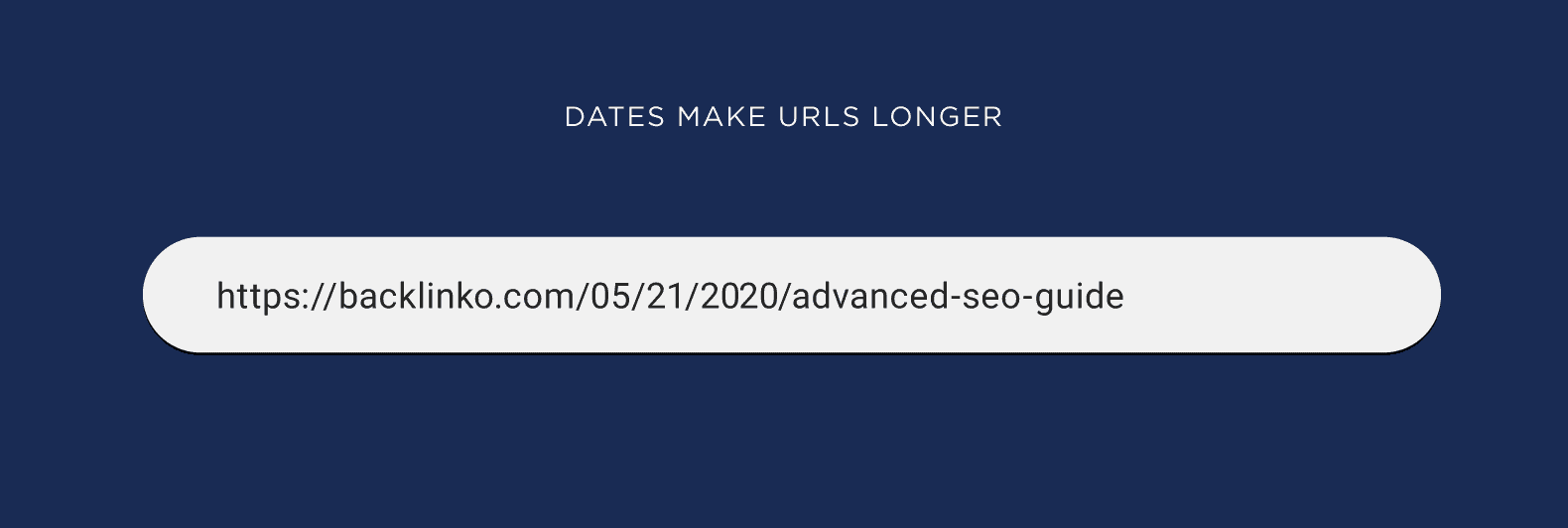
That adds up to 43 total characters.
But when you strip out the date, that decreases the URL length to only 32 characters.

That’s a 25.5% difference!
Second, dates make it harder to update your content.
For example, let’s say you published a list of the best iPhone apps for 2019:
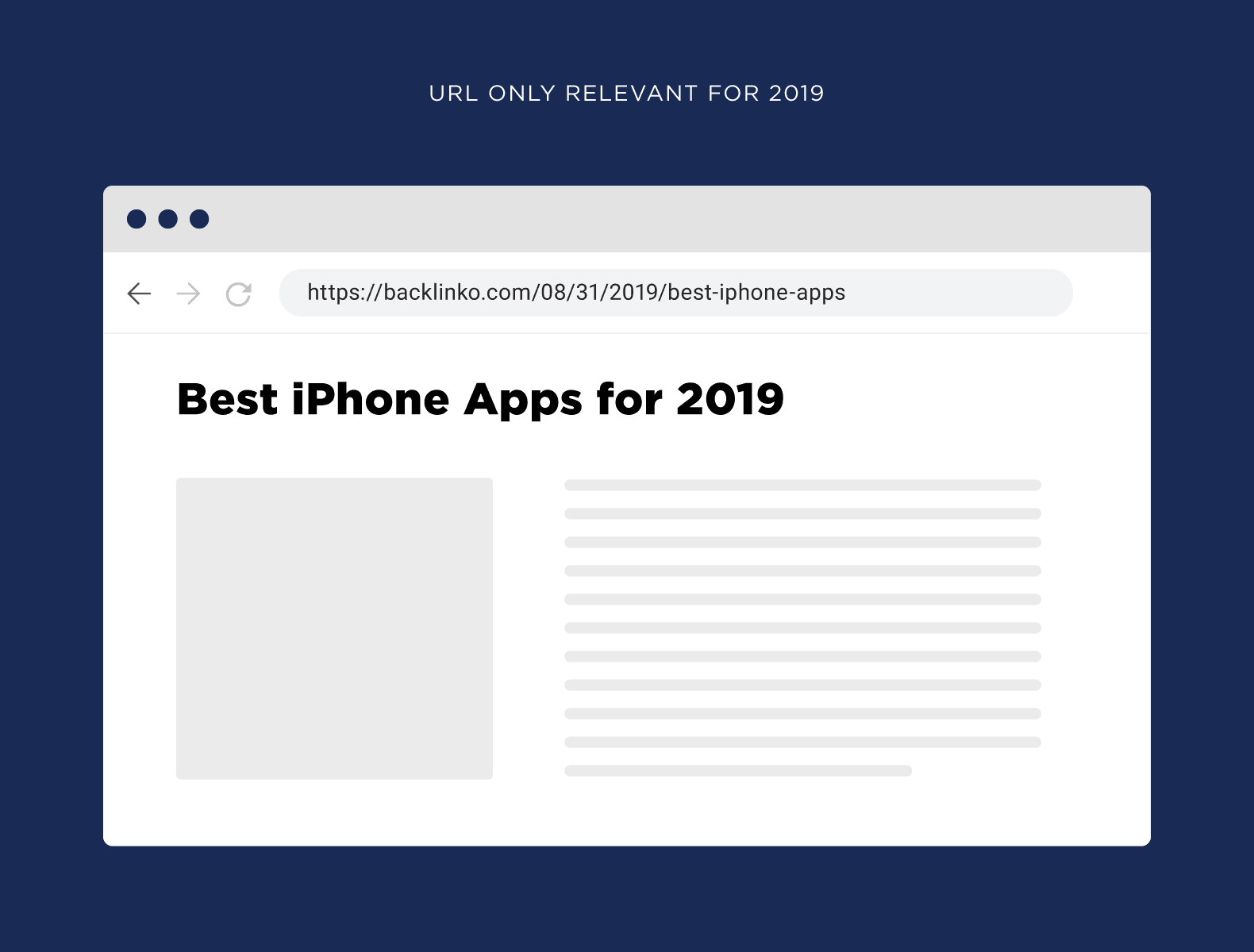
And in January 2020, you want to update that page.
Uh oh. The URL has “2019” in it.
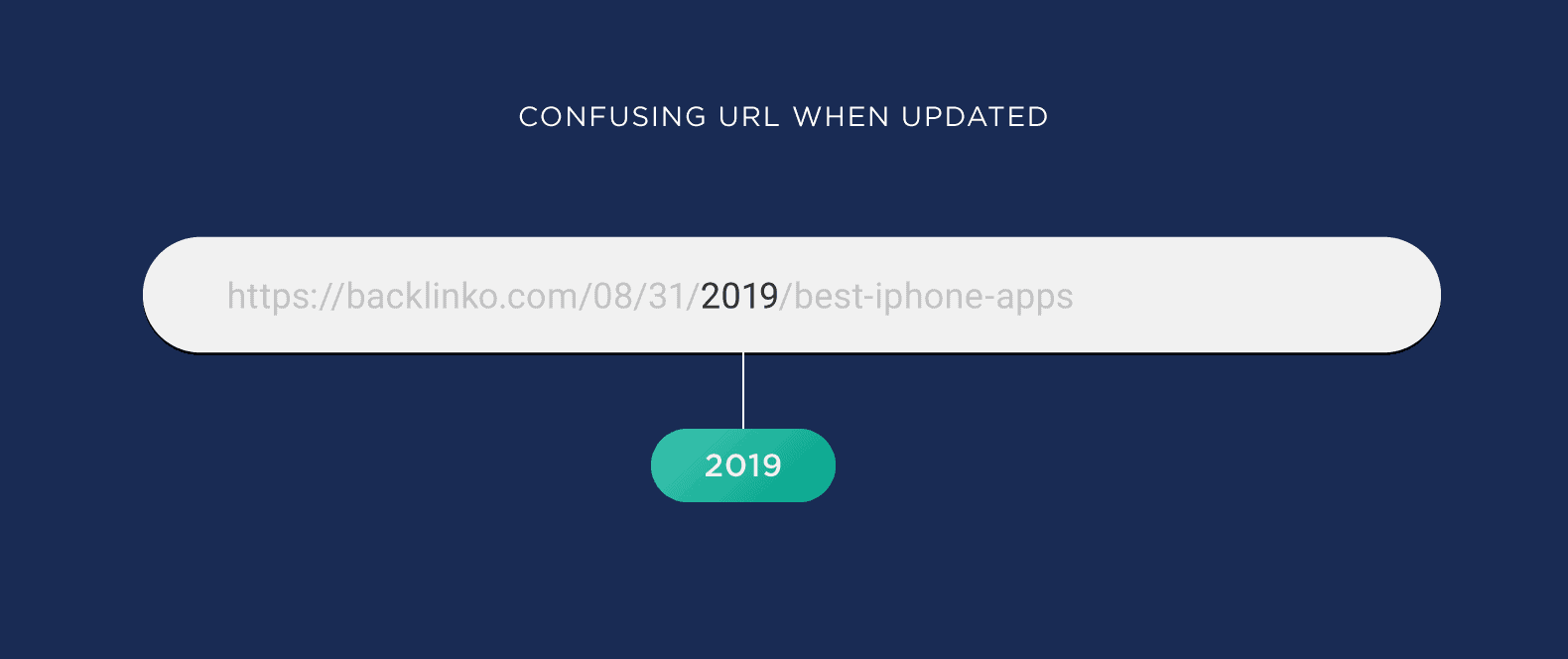
So if you update your page to be all about “iPhone apps for 2020”, the URL is going to be super confusing.
(Yes, you can 301 redirect the page to a new URL. But that’s a pain to have to do every time you update your content)
Instead, I highly recommend not including dates in your URLs at all.
Help With Navigation
Well-organized URL subfolders make it easy to understand where users are on your site.
(They also help search engines organize your site’s pages into distinct sections)
In fact, Google states that:
“The navigation of a website is important in helping visitors quickly find the content they want. It can also help search engines understand what content the webmaster thinks is important.”
For example, a while back I published The YouTube Marketing Hub.
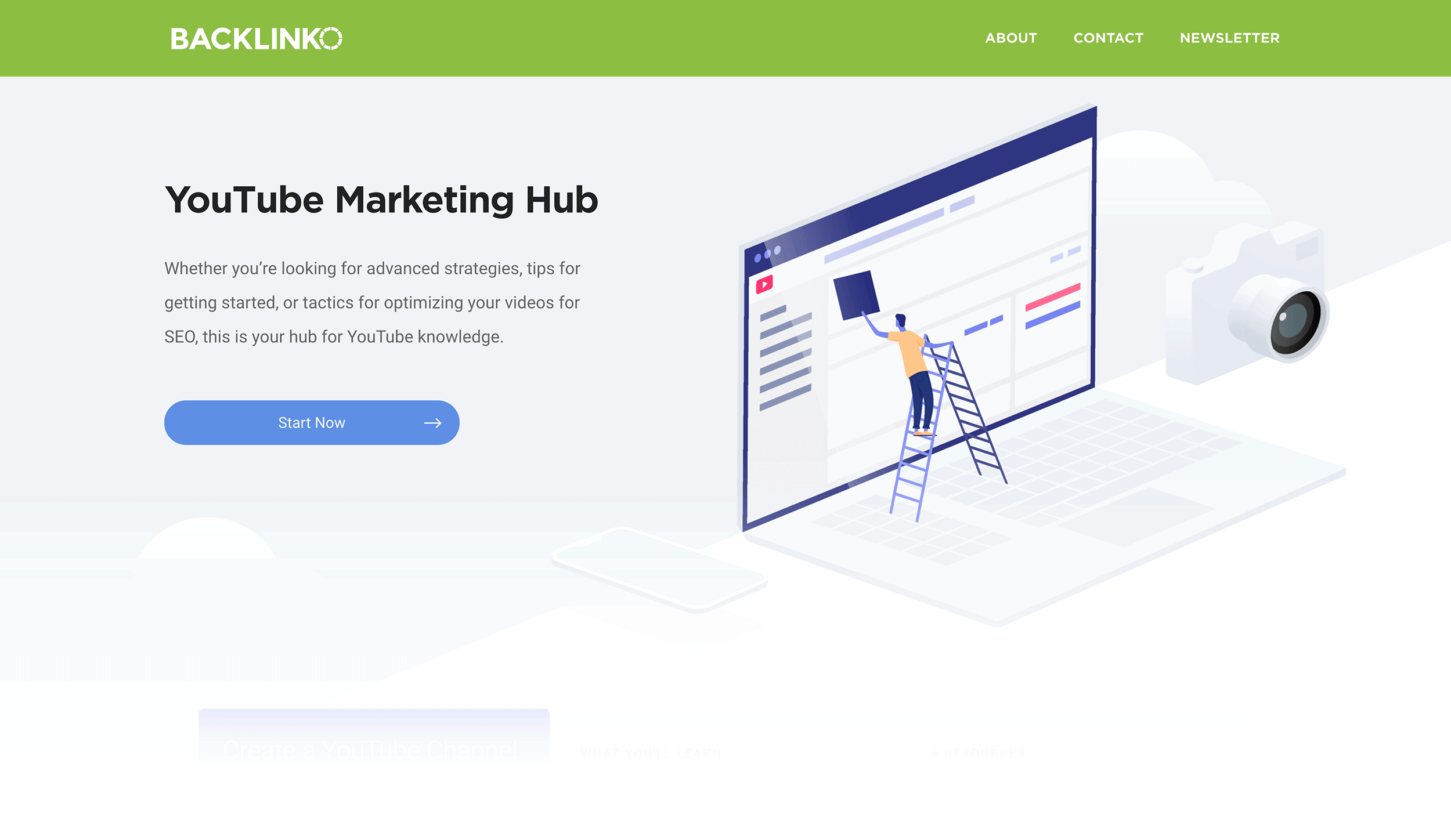
This hub contained 32 pages split up into 5 different categories:
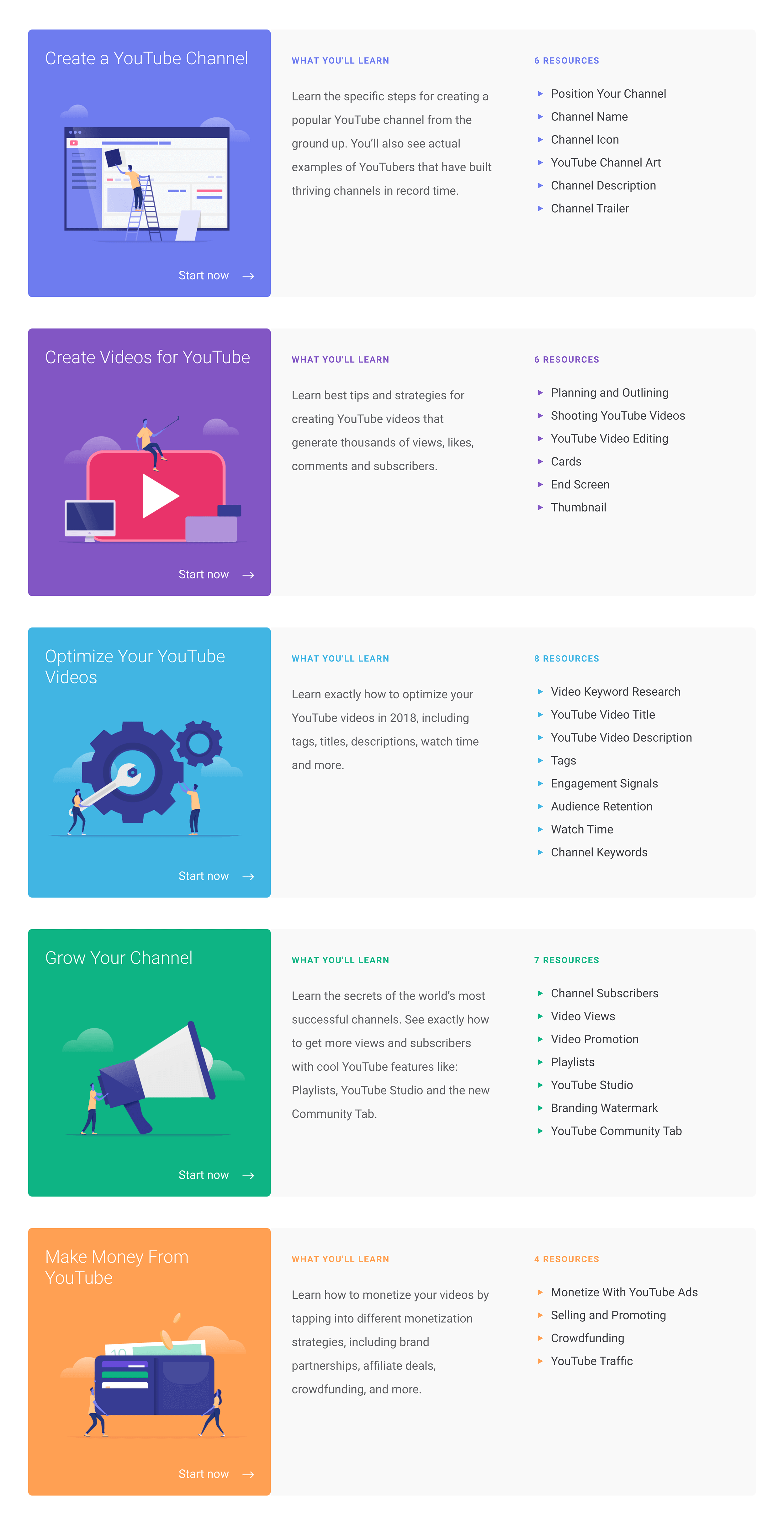
And to help users (and Google) make sense of all these different pages, I used an organized URL structure.
Specifically, any URL that included “/hub” let people know they were in the hub.
https://backlinko.com/hub/youtube
A word or phrase that came after “/hub” let them know they were on a specific page inside of the hub:
https://backlinko.com/hub/youtube/create-channel
That said, you don’t need to use a lot of folders. In fact, using a ton of folders makes your navigation more complicated, not simpler.
For example, let’s look at an e commerce site that uses a smart approach to URLs and site navigation: PetSmart.
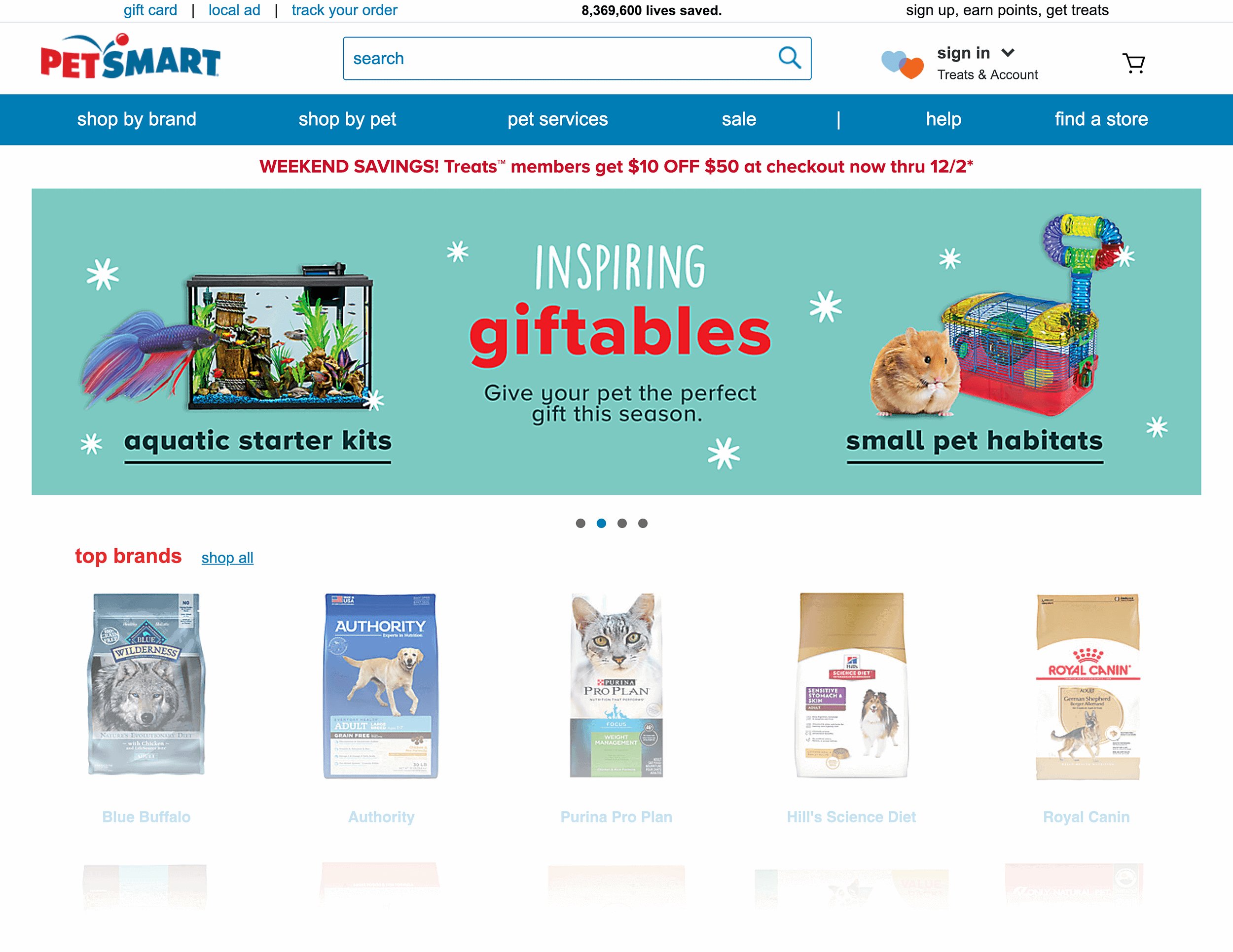
PetSmart.com uses “Pet” → “Category” → “Subcategory” → “Product” to organize their 85k+ pages.
https://www.petsmart.com/dog/food/dry-food/blue-life-protection-formula-adult-dog-food—chicken-and-brown-rice-41846.html
Go With HTTPS
HTTPS has more to do with security than URLs. But considering that HTTP or HTTPS is part of your URL, it’s worth covering here.
There’s not much to discuss here. HTTPS is the new standard. So if your site isn’t secured yet, I highly recommend switching over.
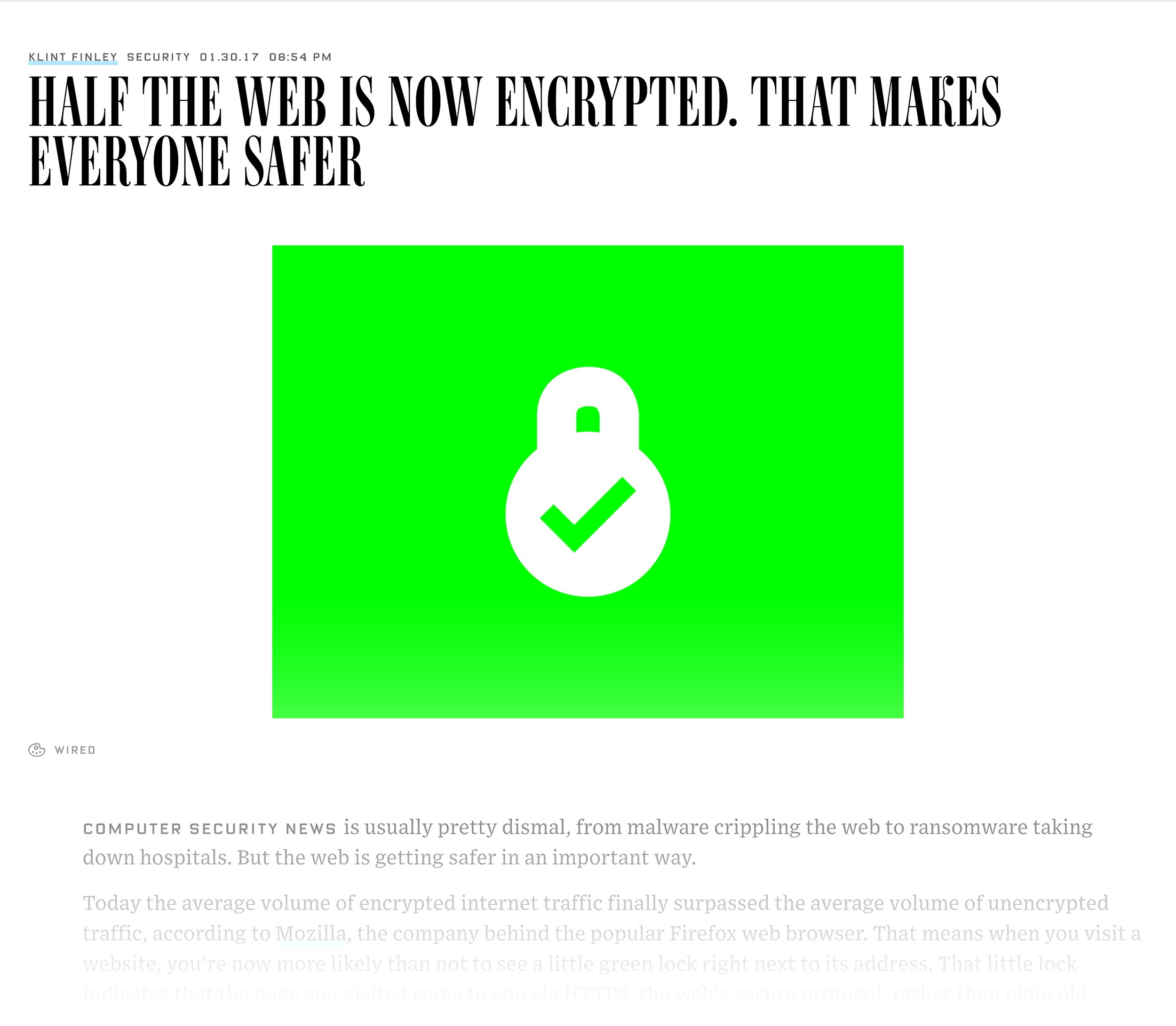
Plus, Google has said that HTTPS-secured sites have a ranking advantage:
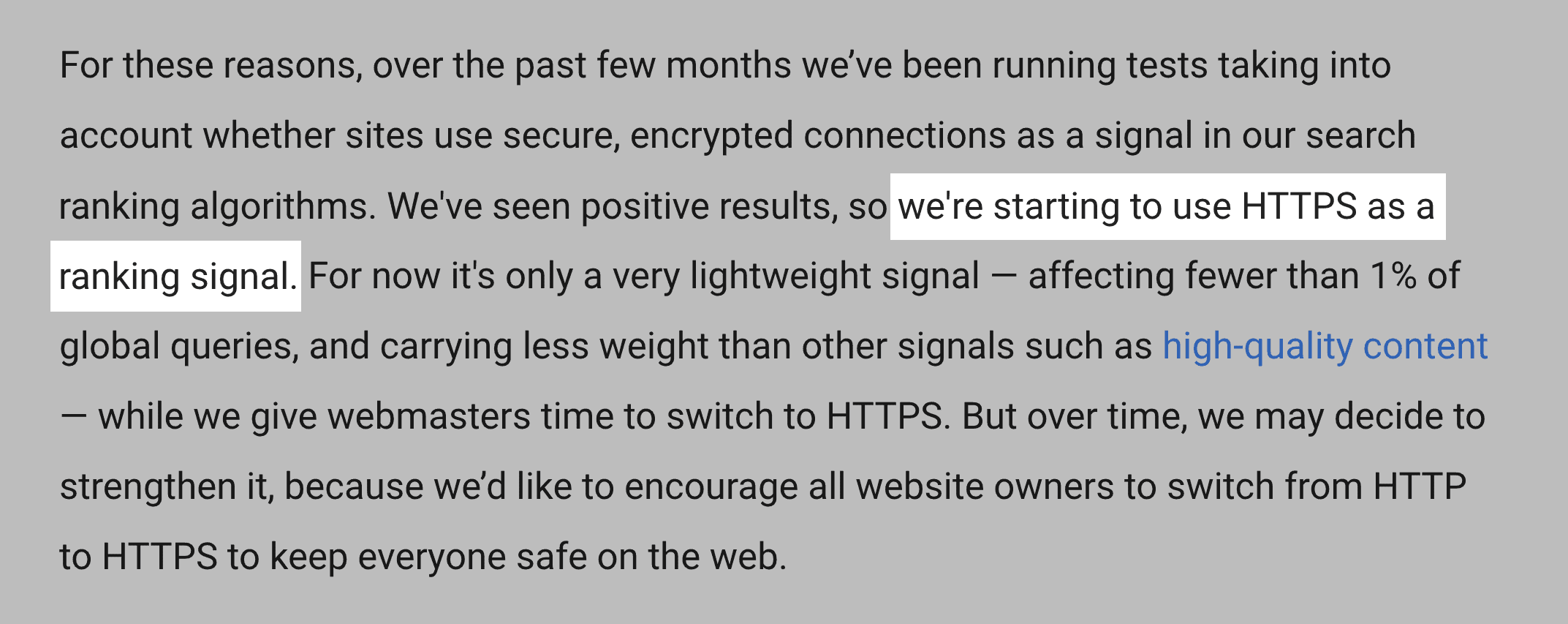
Don’t Use Blog Post Titles
Back in the day I’d let WordPress turn my blog post titles into a URL.
Here’s an example:
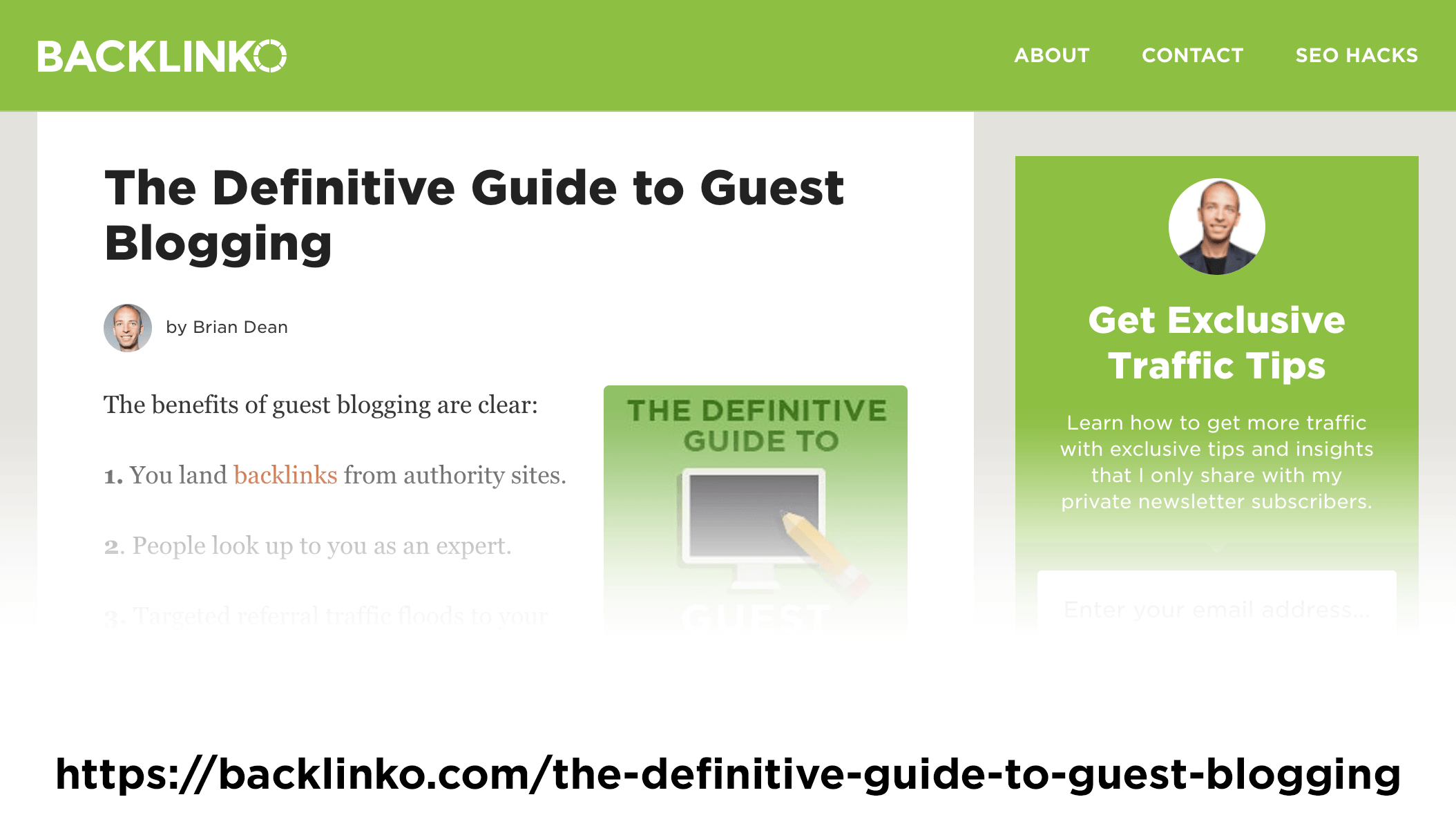
Why is this a problem?
First, just like with dates, this tends to create longer URLs than you actually need.
Second, it makes changing your content MUCH harder.
For example, let’s look again at my guest blogging guide:
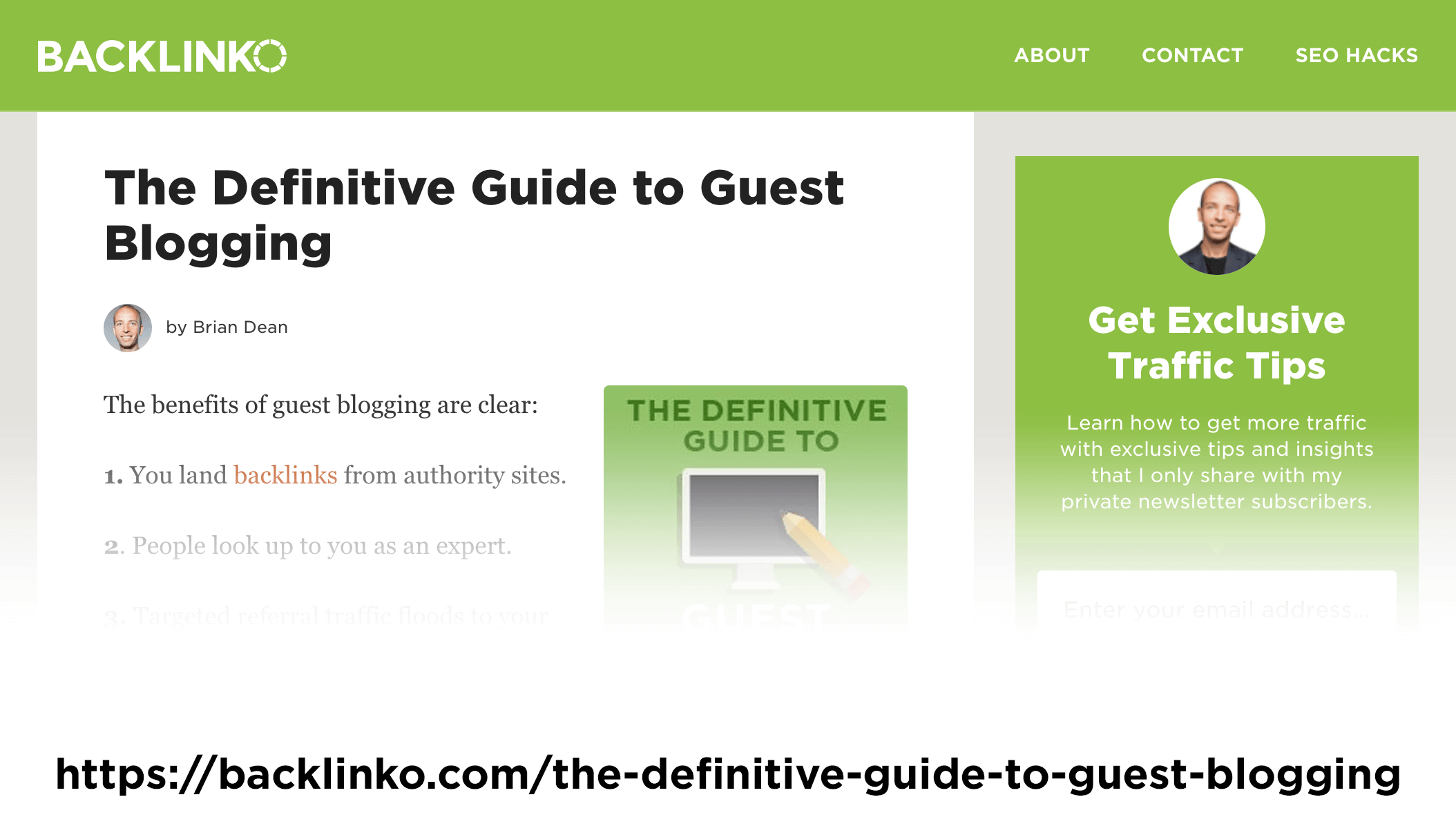
Well, let’s say I wanted to pivot and turn that post into a case study. Or a list post. My URL would suddenly become obsolete.
That’s why I recommend ONLY using your target keyword (plus a word or two) in your URL.
For example, I recently published a guide to learning SEO.
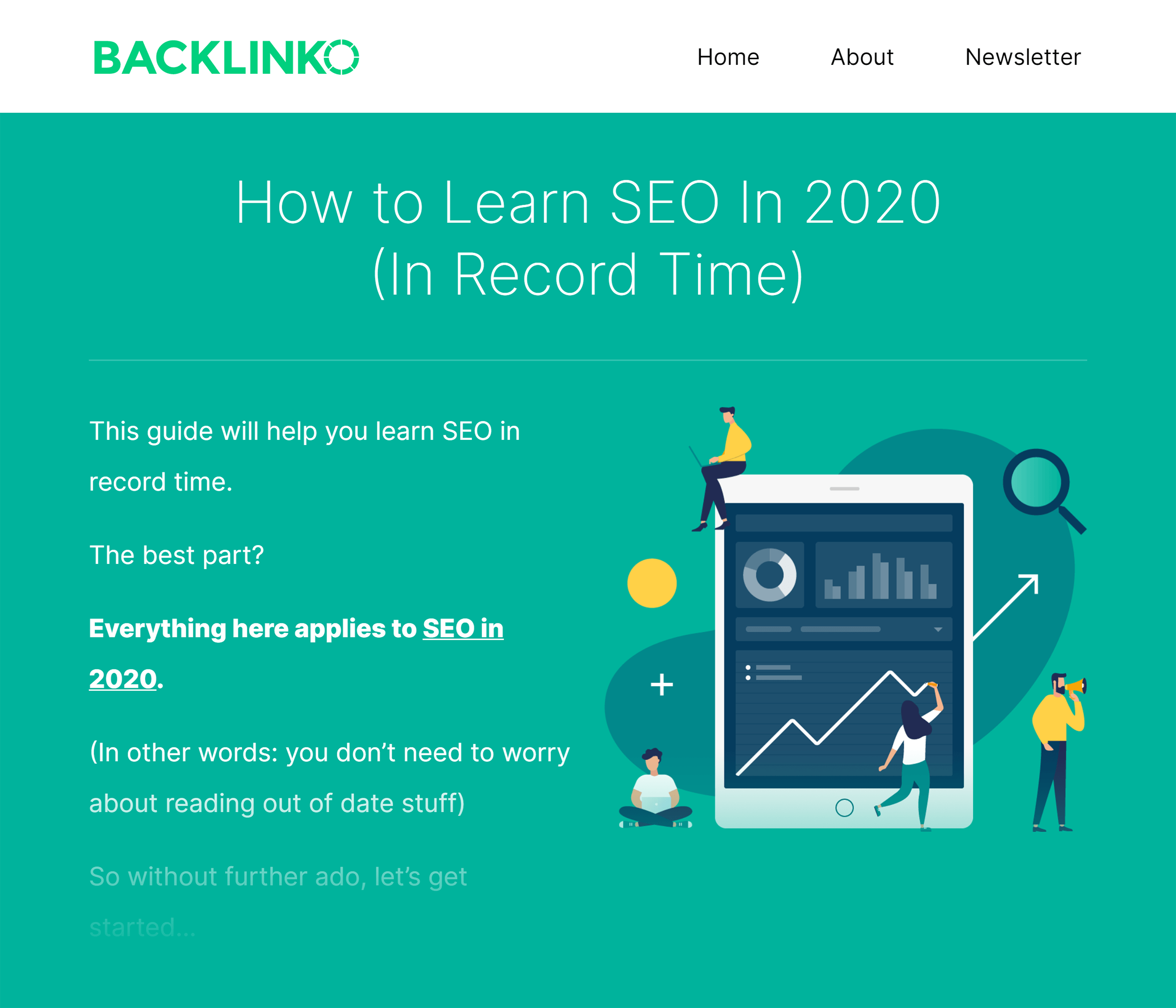
I could have just made the URL: backlinko.com/learn-seo.
But I wanted to make my URL more enticing for Google searchers to click on.
I realized that people that searched for “Learn SEO” didn’t want an in-depth course. Instead, they wanted to quickly brush up on the basics.
So I added the word “fast” to the end of my URL:
https://backlinko.com/learn-seo-fast
Nothing Dynamic
Dynamic URL parameters (like UTM tracking) have their place.
But from a pure SEO standpoint, these URLs can cause problems.
Specifically, dynamic URLs can hurt your SEO because:
- Like with dates, URL parameters make your URLs longer.
https://backlinko.com/?utm_source=facebook&utm_medium=banner&utm_campaign=fb_campaign - If the different versions of your URL get indexed, these can cause duplicate content issues with Google.
- Dynamic URLs are ugly and confusing to users… which can hurt your organic CTR.

- Dynamic URLs are usually so long that they get cut off in the search results. Not good.

Subfolders > Subdomains
Subfolders are MUCH more SEO-friendly than subdomains.
That’s because Google can consider a subdomain as a completely separate website:
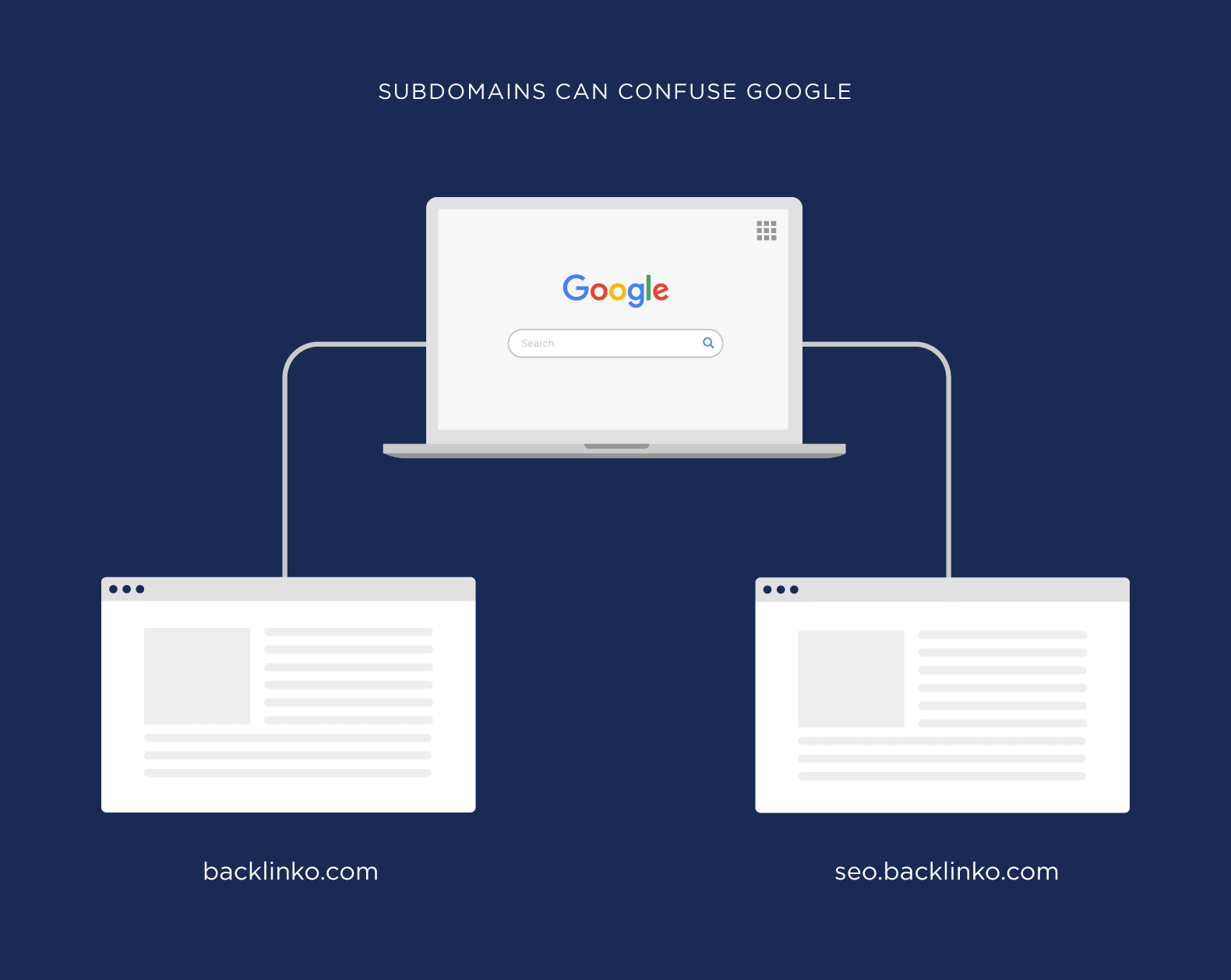
But when you move that section to a subfolder, Google knows that it’s part of your main site:
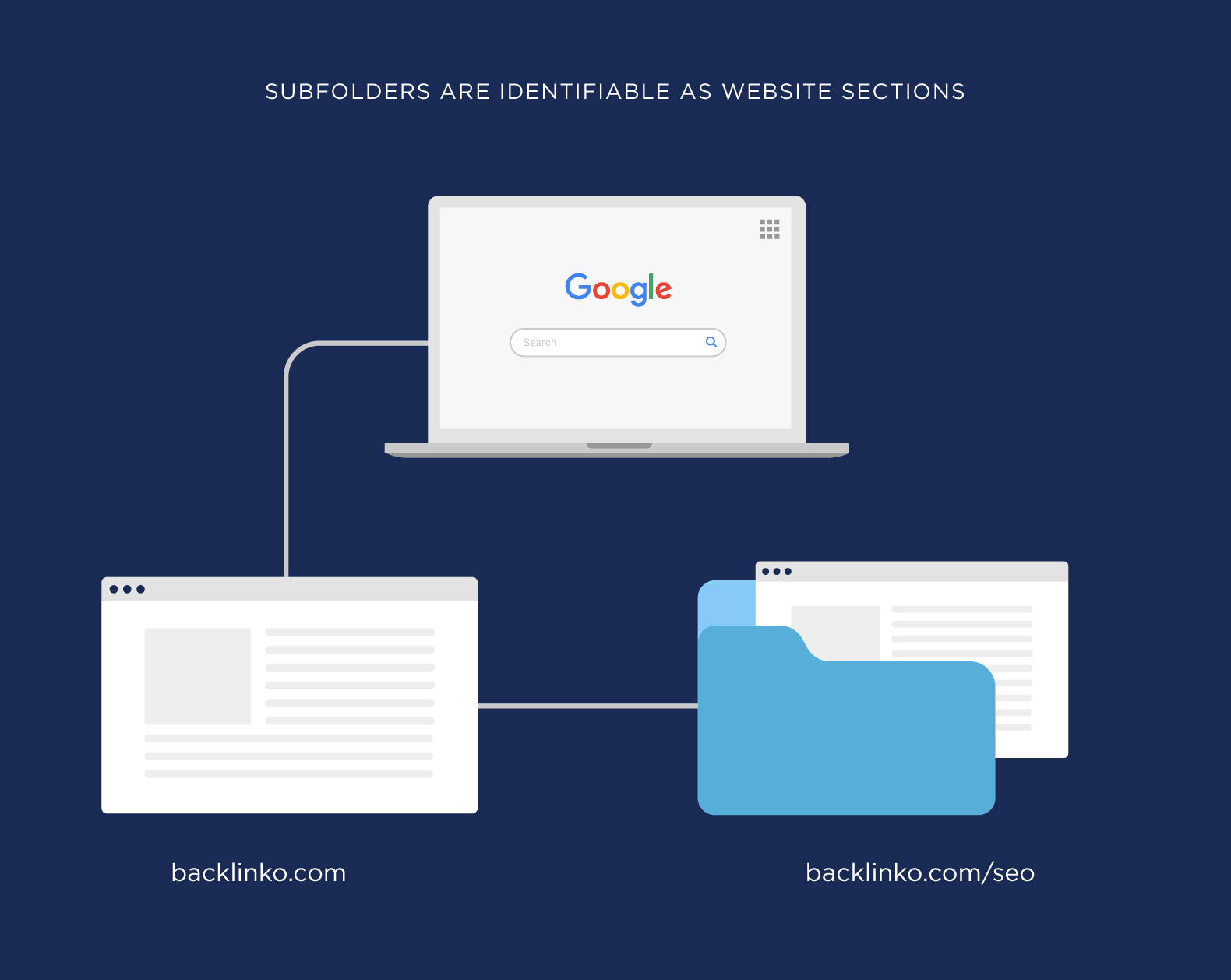
Here’s an example of what can happen when a site moves a section of their site from a subdomain to a subfolder:
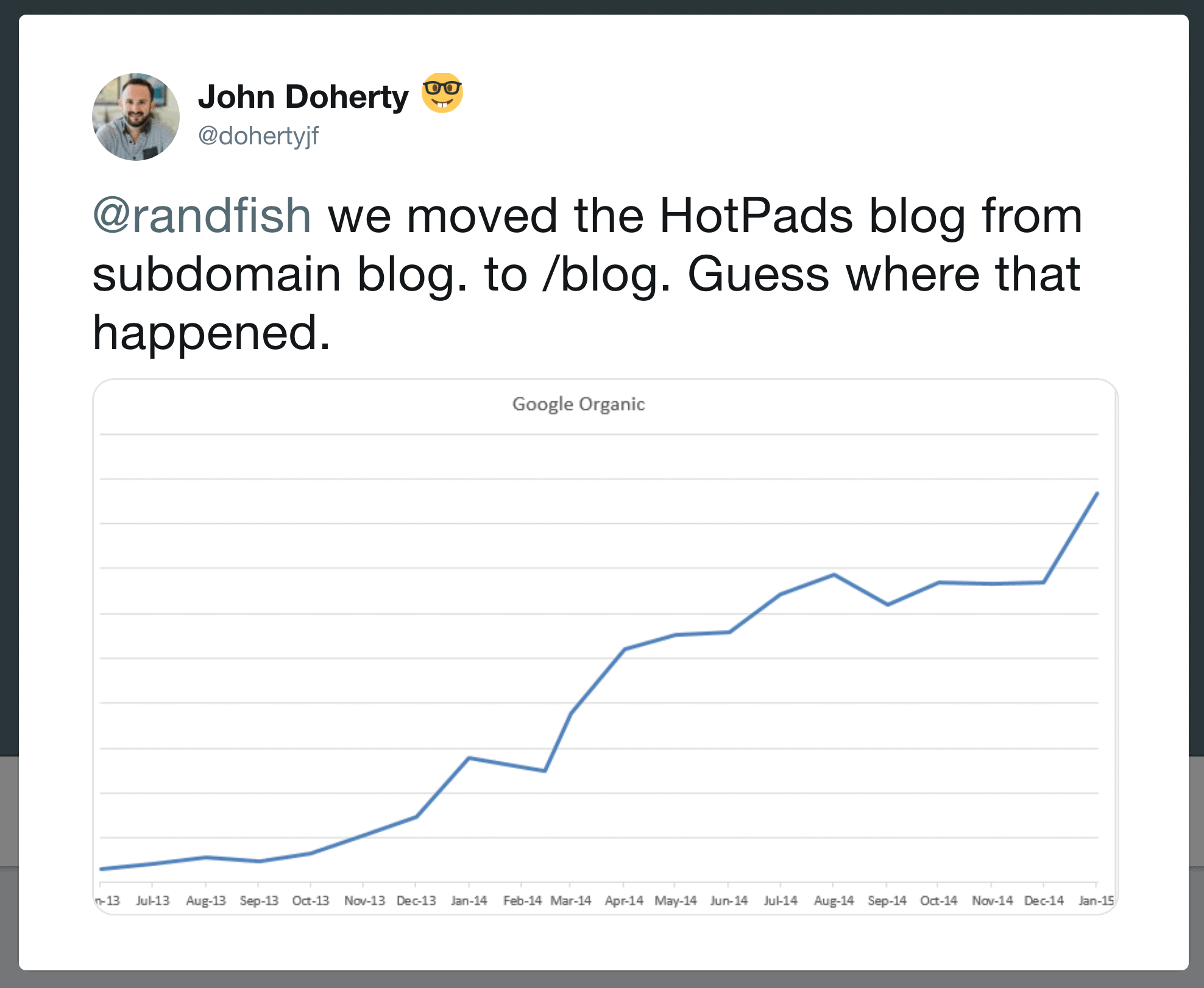
Learn More
Keep a Simple URL Structure: A short but informative guide from Google on URL best practices. Note how they don’t follow their own advice 🙂
SEO & Google Fight Over How Google Treats Subdomains vs Subdirectories: An interesting debate about subdomains vs. subfolders. I recommend subfolders in this guide (based on my personal experience). But Google’s take is that they’re treated the same. Worth reading if you’re considering a switch.
Clickbait Has a New Address: A look into how much URLs influence CTR.
